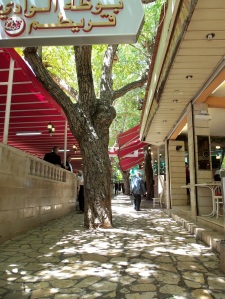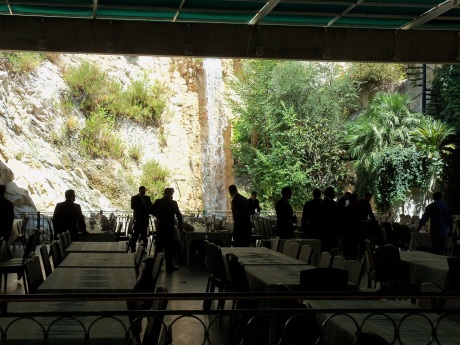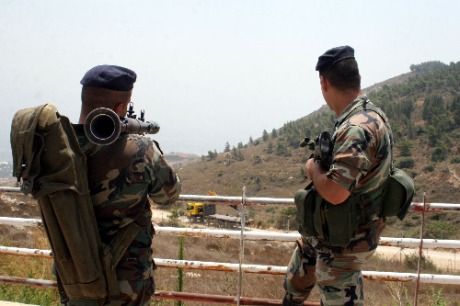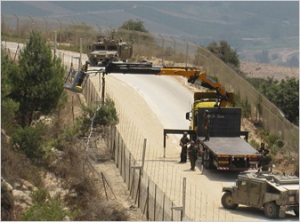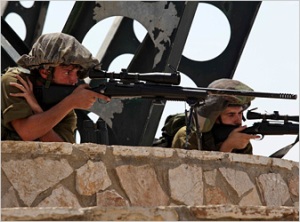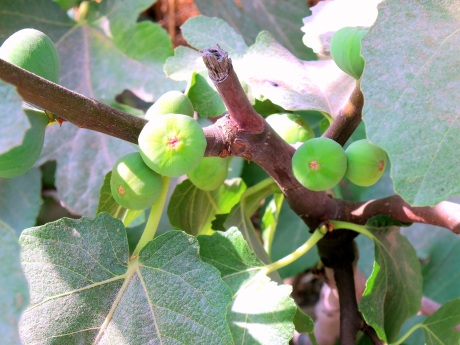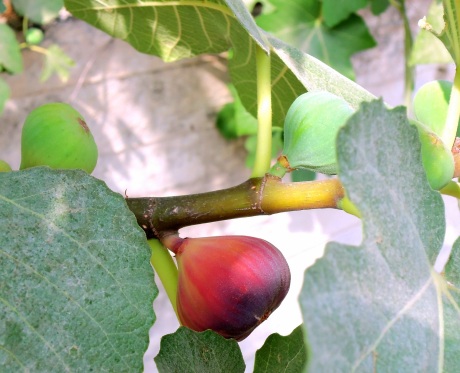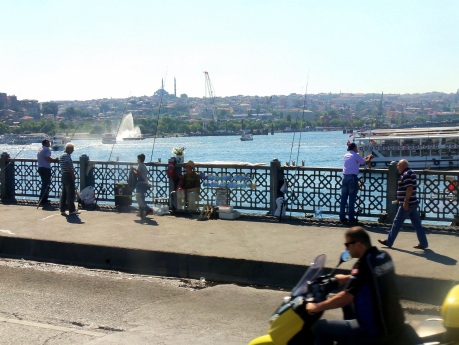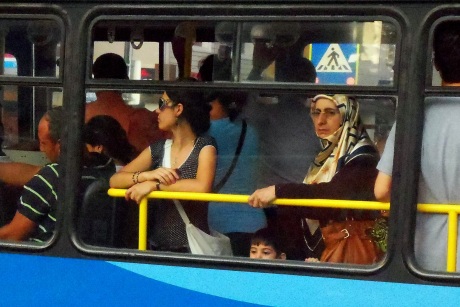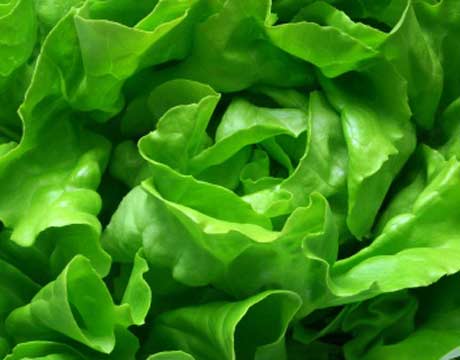Two weekends ago, I decided I felt like going on an afternoon walk up through Wadi al-3araish to see if I could hike up the mountains from there.
To get to the mountain, you pass through an increasingly narrow, limestone gorge on the north side of town. Too narrow to be settled, Zahle grew some distance from the mouth of this splendid natural feature along the banks of the Bardouni river, which is more like an aging stream. Its bed is covered in algae, and the length of its course, cutting through town, is strewn with metal and plastic waste. The momentum of Zahle’s growth has mostly been towards the valley proper, squeezing in between the mountains until it reaches the open, fertile Beqaa.
But Wadi al-3araish (Valley of Grapeleaves) is to the north of it all in the shaded gorge that follows the river towards its source at Naba3 Bardouni. The stone is a deep gray; trees cling to the steep rock faces, and the sound of trickling water is everywhere. Here the river is left alone, because it is here that the Bardouni Cafes were started, more than a century ago.
They have sense become something quite other than their origin. At first a couple of restaurants with chairs and tables plopped on the pine needles and under the oak, today the Cafes du Bardouni is a very developed, semi-built-up strip of restaurants, arcades and vendors. It is all, of course, very ritzy, and aimed to please the best of Beirut, Europe and the Gulf. That is not to say that locals do not enjoy them, but for the most part they are out of people’s average price-range for a nice meal.
I was amused, walking through this long chain of tables, to find that in one restaurant, a peasant woman was sitting down at this bizarre work station to make marqouq – a peasant bread that is large, very thin but somewhat hardy. It reminds me somewhat of very large crepes. Still, there she was, dressed in her patterned 3abaya and white veil, sitting in the middle of all sorts of ingredients and with the large, rounded oven necessary for marqouq, as waiters and patrons in tuxedos mingled casually in front of her, asking her questions and making orders.
It all seemed a little incongruous. Not unlike the coal-boys who come and change the coals of the argileh (water-pipe), who in nicer restaurants are generally stuck wearing the ridiculous embroidered vests and tarbouches of the 19th century, the woman’s traditional-ness was on display, a statement of authenticity: come to our restaurant, we dragged a woman from the mountains who is going to make this bread for you. Eat it and like it, then tell your friends.
It was hard to tell if she was happy there. A woman of her age (she had to be at least 50), and as worn-looking as she, probably deserved some rest after a long, trying life in the mountains. Having her peasant cooking talents – honed to feed her family – used as a business tool must have been an odd position. Doubtless the money made it worth her while. But will it always do so?
Descending from the cool mountain world to make home-baked bread for wealthy strangers, I can only imagine the mental conflict. But maybe her sitting there, in a restaurant in the Bardouni, is more a sign of her strength and willingness than it is of passive resignation. Maybe she enjoys it. Maybe. It is difficult not to wonder, however, when living tradition becomes a display.

